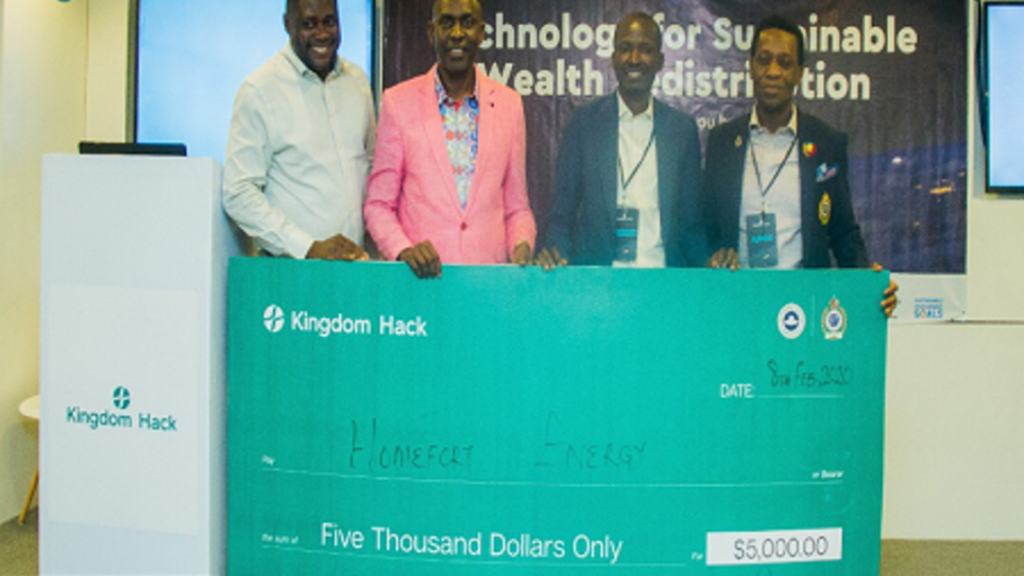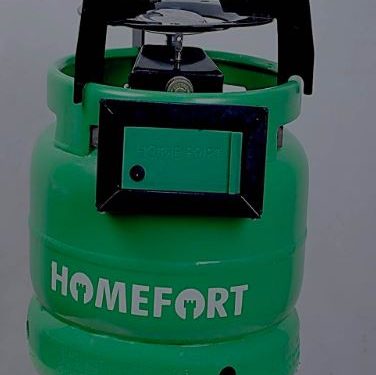Clean Energy Startup, Homefort Energy has emerged the winner of the just-concluded Kingdom Hack organized by the Redeemed Christian Church of God (RCCG). The startup also walks away with a $5000 grant and a 6-month voucher to use a co-working space freely.
HomeFort Energy was founded by Opeyemi Owosho. As felicitations were in order, Technext reached out to Opeyemi to have a clearer picture of the startup and also meet the Founder.


The lively conversation that ensued is detailed in the paragraphs below, as Opeyemi shared his experience from winning the grant, winning other competitions and co-founding 2 clean energy startups.
The journey into Clean Energy
Opeyemi is a graduate of Petroleum and Gas Engineering from the University of Lagos. He started his first Clean Energy Startup as a response to the safety concerns people have concerning cooking gas.


The first startup, named Ficotech, specialises in the production of table-top gas stoves that are pre-installed with safety regulators that prevent gas leakage. With the safety measures added, the startup wants to increase the adoption rate of cooking gas in the country for people with low to middle income.
“My passion for LPG is personal; I grew up in a seemingly middle class household. While growing up, we never used cooking gas at home because my mum was worried about cooking gas explosion. So, with my academic background, I thought I could make consumers feel safer with cooking gas usage”


When the first startup began operations, Opeyemi identified a more pressing problem which, according to him, is the reason why Nigeria is the lowest consumer of cooking gas per capita head in sub-Saharan Africa. The problem was that low-income households did not have enough money to obtain cooking gas starter kits like cylinders.
Upon identification of this problem, Opeyemi and his team developed and launched Homefort Energy as a solution.
“We discovered that a bigger problem why Nigeria is the lowest consumer of cooking gas (per capita head) in Sub Sahara Africa is because of endemic poverty. Low income households can’t muster enough money to procure cooking gas startup kits. Not only that, regular refill of cylinders at price points higher than their low daily income was also a problem.
Opeyemi Owosho
The solution Homefort Energy brings…
By employing a model similar to that of existing gas filling stations in the country, Homefort allows people to come to its ‘base’. There, people can get a pre-filled gas cylinder for a token of #500 and go home with it. The gas startup kit is what the token covers.


According to Opeyemi, the cylinder is pre-filled with gas worth #2000 which the user pays for in bits.
Afterward, the user pre-pays for #250 unit worth of gas through his or her mobile phone.
“With as low as #500 down payment, we onboard a low income customer by giving her cooking gas startup kit. Not only that, the startup kit is pre-filled with #2,000 worth of gas. But the customer doesn’t pay for this #2,000 gas at once. Instead, she pre-pays for the gas in microunits of #250 per time using her mobile phone.”
After each unit is exhausted, a proprietary smart meter retrofitted to the startup kit locks-up gas with the cylinder until a new microunit is paid for. When the customer’s cylinder finally runs out of gas, her empty cylinder will be swapped with a new pre-filled one – and the cycle starts over again.
To pay for a new unit of gas, Homefort has printed its own vouchers and leveraged the existing airtime sellers in communities where it operates. It distributes the vouchers to the sellers who then resell to Homefort customers when they need to unlock a new gas unit.
“We use USSD for payment collection. We discovered that income households still buy call-credit vouchers from vendors. So what we did was to print our own vouchers and utilized these existing call-card vendors in these communities to distribute them.
So when customers are out of gas credit, they purchase our voucher from these vendors. The smart meter is IoT enabled. All a customer has to do is enter the vouchers number and serial number of the smart meter”
Opeyemi Owosho
Homefort Energy is currently in pilot mode, running in 20 households for now and planning to scale up to more.
This approach to making clean energy available and affordable to households with low-income is helping the country move on in achieving one of the United Nation’s sustainable development goals, and increase the standard of living.






